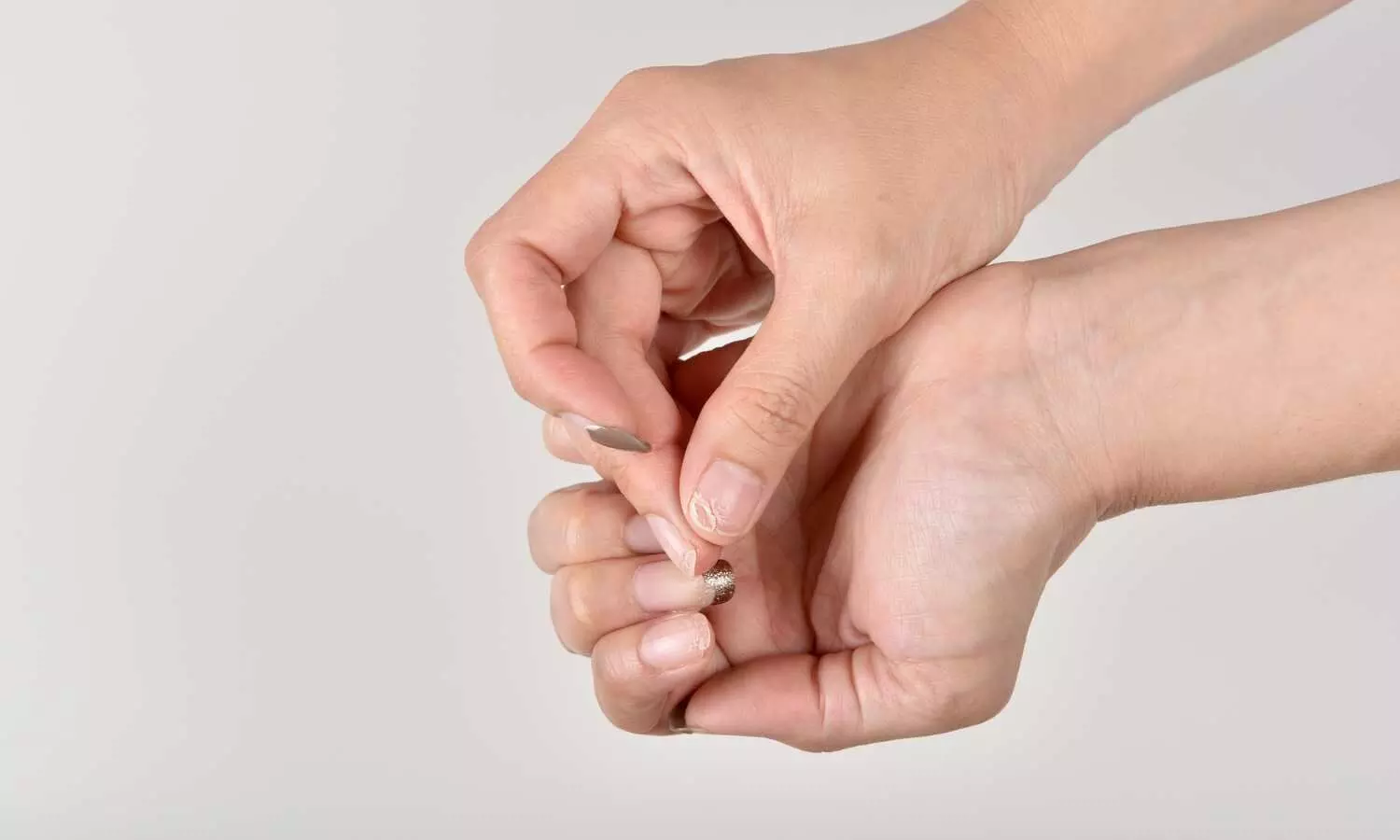Total chemical matricectomy with phenol effective treatment of symptomatic nail dystrophy, finds study

Nail dystrophies, whether congenital, traumatic, or acquired, can significantly impact the quality of life of affected individuals, particularly elderly patients. While periodic conservative treatments are common, they may not always provide satisfactory outcomes. In such cases, surgical intervention, such as total matricectomy with 88% phenol solution, emerges as an alternative method, especially for symptomatic patients.
In a recent study, a series of 48 surgeries were performed on 37 patients to evaluate the effectiveness of total matricectomy with 88% phenol solution for treating nail dystrophies. This study was published in the journal of Dermatologic Surgery by Matter A. and colleagues. Parameters such as pain evaluation, interference with shoes and gait, recurrences, and patients’ satisfaction with the procedure were assessed.
The key findings of the study were:
-
Before surgery, all patients reported some degree of pain or impairment in wearing shoes.
-
Following the procedure, remarkable cosmetic results were observed, with 95.11% of patients experiencing a dramatic improvement in discomfort.
-
No severe complications occurred during the 12-month follow-up period, indicating low rates of postoperative morbidity.
-
It’s important to note that this study was conducted at a single center and involved a limited number of patients, which may affect the generalizability of the findings.
Total matricectomy with 88% phenol solution emerges as an effective surgical method for treating symptomatic nail dystrophies. The procedure demonstrates high success rates, low rates of postoperative morbidity, and high patient satisfaction with cosmetic outcomes. Importantly, it is deemed safe even for patients with associated comorbidities.
Reference:
Matter, A., Di Chiacchio, N. G., Iorizzo, M., & Di Chiacchio, N. (2024). Total chemical matricectomy with 88% phenol: A prospective case series of 37 patients. Dermatologic Surgery, 10.1097/DSS.0000000000004134. https://doi.org/10.1097/dss.0000000000004134
